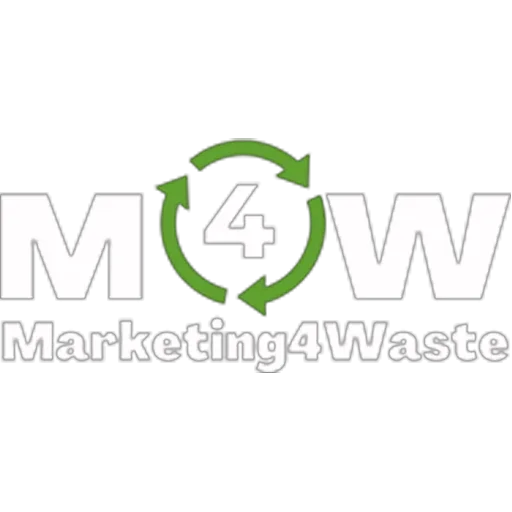Increase the Revenues of Your Waste Company With the Tips Shared in Our Blog Articles

I hope that Someone gets my Message in A Bottle!
Why sending marketing emails can feel like putting messages in bottles and tossing them in the ocean if you don’t know two important marketing tools?
You’re probably thinking of the song by the English rock band, The Police – “Message in a bottle.” What the song describes is very close to what actually happens when you send an email to a list of potential clients who have never heard of you.
That happened to you and thousands of other people who bought lists of “profiled” prospects and expected to receive thousands of emails from potential clients for their businesses. I’d like to tell you that this is something that should never happen in waste management, but it does. And, believe me, this is true not only for emails but also for paper mail.
But first, please allow me to take a step back.
In reality, what happens?
You’re driving your car.
Your phone starts to ring.
It’s a phone number you don’t have on your contact list.
You decide to answer.
On the other end of the phone is a man who will offer you a list of thousands of companies that are eager to receive an email from you. Following his words.
At the same time, he offers you the opportunity to collaborate on the email’s text because he knows how to write it.
You’re still driving. You don’t have much time to think about it because you’re concentrating on driving.
He tells you that this is your last chance. He offers you the list as well as the creation of the email, and now he offers you the opportunity to send the email. In a nutshell, he’s proposing a DEM campaign to you.
You don’t want to miss out on this opportunity.
You take the offer. It only costs $1,000.
The list is delivered to your inbox a few days later.
There are tens of thousands of names.
You crack a grin. You believe that now is your time.
After three days, the guy contacts you to define the email.
He asks you a few questions to help him write the text. He also tells you that the email will be sent in a week.
You’re ecstatic.
You call the guy ten days later to find out how the campaign is going.
He responds by saying that he is currently short on data and that it is best if you contact him again in ten days.
After ten days, you call him again.
He responds that you should have received potential clients’ feedback directly on your email. All of the emails that were sent were correctly processed.
You inform him that you have not yet received any feedback.
He tells you to wait.
Well I don’t want to go ahead.
You’ll never receive any feedback.
Unfortunately.
In fact what happened with that campaign is the same thing that could happen sending a paper mail: no one gives you feedback.
I understand how it feels, especially since you invested $1,000 and a few hours of your time.
And I’m sure you’re wondering the same thing.
Why are my competitors reaching new clients results by sending emails and paper letters?
Why does the list of potential clients not want to receive my proposal?
Before I go any further, let me warn you that what you will discover will be harmful to you.
In fact, I’ll tell you what really happened, and I’ll tell you that you’re a part of the problem.
Yes, you read that correctly: you are a part of the problem.
Or, to put it another way, your authority is part of the problem.
I know you believe that everyone in the city is aware that you own the waste facility because your father founded it 40 years ago, and your family has contributed to the community’s growth.
And let me emphasize the importance of this.
But how might people outside your community be aware of this fact?
Some people may have heard of you, particularly your competitors and their employees, but no one really knows who you are. That is the primary limitation of your email campaign (DEM in technical terms).
In fact, consider how many emails you receive every day, and how many of them come from people you don’t know, and thus you don’t consider.
As a result, you can easily understand what happened to the email campaign you sent with the assistance of the man who sold you the list.
You are anonymous to them.
Also, if you are extremely valuable to your community.
However, this is only one of the points.
In fact, I’m pretty sure that another significant issue caused by your email was that it was written in a language that the people on the list didn’t understand.
What does an unfamiliar language mean?
Think for a moment, what happens if you try to explain to your child what a shredder does in your plant using the same terminology that you use with your technical department.
He or she will look at you in the same way that Elliot was looking at E.T. for the first time; clueless.
Unfortunately, the same thing happened with your email marketing campaign.
In fact, people must first get to know you before they can trust you, and it is important that they recognize their common language in order to identify the problem and the solution.
That means one thing: you must understand your target audience.
It’s easy to see how you wasted money by creating a campaign for a list that, while likely well-targeted, knows nothing about you, your brand, and, in the majority of cases, speaks a different language.
Therefore, what I can tell you is that you can either take a shortcut, as you did with the list without results, or you can begin to create your marketing.
Only by creating your marketing will you be able to take shortcuts.
Marketing, in this case, provides you with two important tools to avoid your message becoming like a message in a bottle in the middle of the ocean.
Your Personal Brand is the first tool.
Yes, it is all about you.
Remember how I told you at the beginning that this is your problem?
You’ll see what I mean now.
In fact, it is your responsibility if no one knows you for your role as a waste manager or as the owner of a waste management company.
I know it was unnecessary until recently, but in today’s overly communicative world, it’s more than necessary.
People want to know who you are, why you do what you do, and what motivates you to do it. Simultaneously, people seek consistency between what you do and how you live.
Consider your favorite baseball player, basketball player, or soccer player for a moment.
You know him/her not only for his/her game abilities, but also for his/her personal life, the challenges he/she overcame to get to where he/she is now, and how he/she spends his/her daily life. At the same time, you are aware of what is going on in his or her personal life.
You’ve probably heard of Tiger Woods, one of the best golfers in the world, who lost millions of dollars in sponsorship due to personal problems in his personal life.
That is an excellent illustration of the significance of personal branding.
However, what exactly is a personal brand?
I gave you some athletes as examples, but that doesn’t mean you have to be one.
In fact, your Personal Brand is what people associate you with. It is the impression that others have of you when they think of your name; an amalgamation of interactions, experiences, prior knowledge, public opinion, personality, reputation, and other factors.
For that reason, ask yourself:
What am I well-known for? What merits do I receive credit for? What is my area of expertise that I can share with my target audience?
Starting with the answers to these questions, you’ll chart your path to developing your personal brand. A personal brand that wants to be known by your target audience requires, first and foremost, the second marketing tool I mentioned: knowledge of the language used by your target audience.
That means you must study your target audience.
I understand what you’re saying, “All citizens are my target audience when it comes to collecting and treating waste.”
No.
Let me stop you there.
In fact, one of the most important points is that your personal brand cannot discuss all of the different types of waste that you collect, but it can discuss the importance of waste segregation and how you do it at home, at work, and in your daily life.
As a result, one of the most important points is to be focused on one thing (usually one problem that your service or product solves) while also having the ability to study and learn the language of the people who talk about it.
By using the same language, you gain the ability to connect with your target audience. To establish rapport.
I’m sure you’re wondering why I’m talking about Personal Brand in this newsletter, especially since you’re in the waste business.
Well, let me tell you that strong personal brands are especially important for waste businesses.
People, in fact, need examples to follow in order to change their habits.
A strong personal brand has the ability to influence the people who are driving their choices and decisions.
There are numerous examples available today.
People who decide to follow a particular diet to those who decide to become more active in waste collection and treatment as a result of a model to follow.
You can make a difference in your city, country, or state.
My team and I would like to help you.
As a result, we developed the first Marketing4Waste MasterClass, in which we will provide you with all of the tools you need to build a strong personal brand, determine which language your target audience speaks, and much more.
Cheers
Sam


© 2025 Marketing4waste - All Rights Reserved,
Marketing4Waste is a brand of MiM MarketingInterimManagers LLC
+1 801 804 5730

